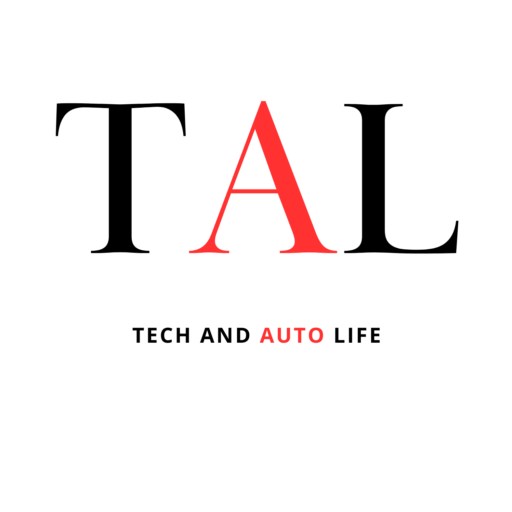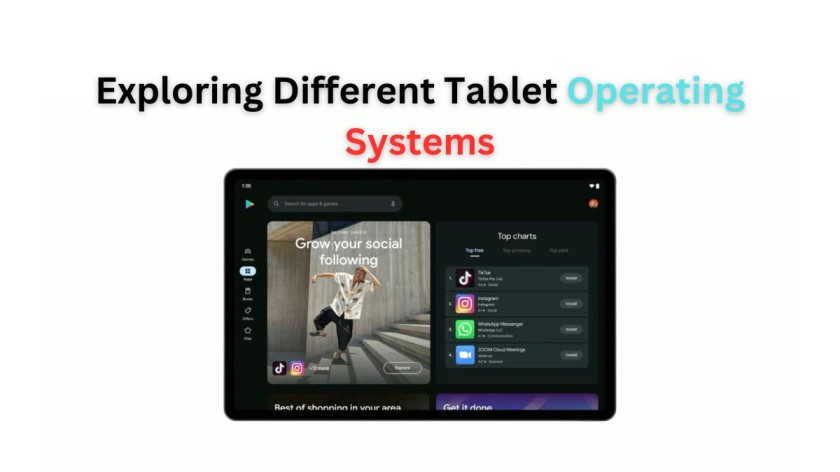Table of Contents
Introduction:
In our modern era dominated by technology, the role of tablets has transcended mere convenience to become essential companions for both professional endeavors and leisure activities. As we navigate through our bustling lives, these sleek devices offer a seamless blend of productivity tools, entertainment options, and connectivity features, making them indispensable tools for a wide array of tasks. Whether you find yourself immersed in a fast-paced work environment or simply seeking versatility to enhance your day-to-day activities, the importance of selecting the right operating system (OS) for your tablet cannot be overstated.
Embark with us on an enlightening journey as we delve deep into the multifaceted world of tablet operating systems. Our exploration will uncover a rich tapestry of diverse platforms, each with its own set of unique features, strengths, and applications. From the intuitive user experience of iOS to the boundless customization options of Android, and the seamless integration of productivity tools in Windows to the streamlined simplicity of Chrome OS, there exists a myriad of options tailored to suit every individual’s preferences and requirements.
Join us as we unravel the intricacies of these operating systems, offering insights and guidance to help you make informed decisions about which platform best aligns with your specific needs and aspirations. Whether you’re a seasoned professional, an avid content creator, or a casual user in search of the perfect digital companion, our exploration into the world of tablet operating systems promises to be both enlightening and empowering.
Prepare to embark on a captivating journey of discovery, where every twist and turn reveals new possibilities and opportunities for enhancing your digital experience. Welcome to the fascinating world of tablet operating systems – let the exploration begin!
Understanding the Tablet Operating System Landscape:
The tablet market offers a diverse range of operating systems, each designed to cater to the unique requirements of different users. These include the widely recognized Android and iOS, known for their user-friendly interfaces and extensive app ecosystems. Additionally, there’s the productivity-focused Windows OS, known for its compatibility with desktop applications and multitasking capabilities. Another contender is the streamlined Chrome OS, which emphasizes cloud-based computing and simplicity. Let’s delve deeper into these leading operating systems for tablets.
List of Tablet Operating Systems:
(1) Android Tablets: Versatility at Your Fingertips
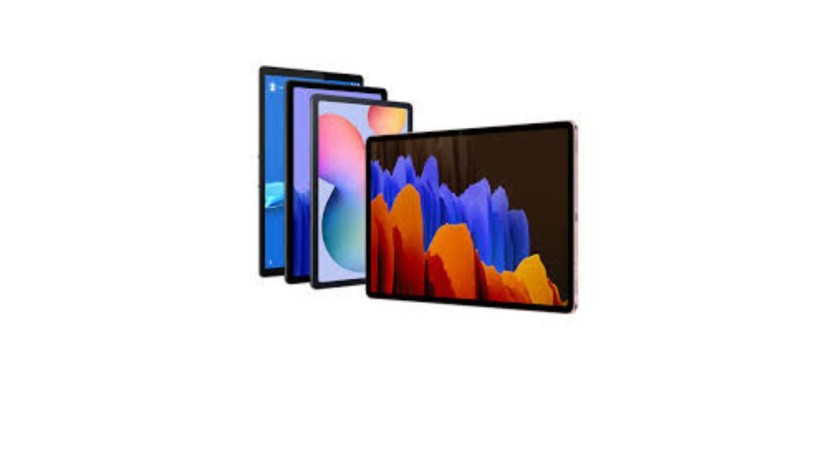
Sure, here’s a more detailed rewrite of the text: “Android tablets are powered by Google’s renowned operating system, offering unparalleled versatility and customization. With access to the vast Google Play Store, users can choose from a wide array of apps, games, and utilities to personalize their experience according to their preferences. Whether you’re a multimedia enthusiast looking for high-quality video and audio experiences, a productivity fan in need of efficient work tools, or a gaming buff seeking an extensive selection of games, Android tablets cater to everyone’s needs and preferences with their diverse range of features and functionalities.”
(2) iOS Tablets: Seamlessness Redefined
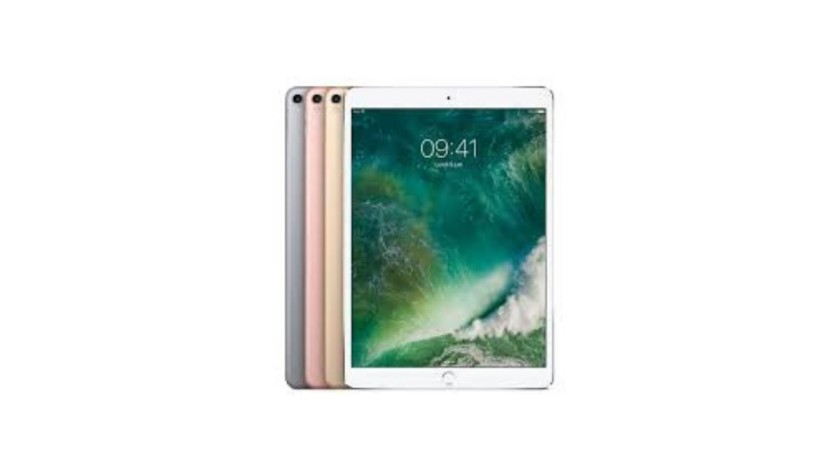
The Apple iOS ecosystem is well-known for its seamless performance and user-friendly design. iPads, which run on iOS, are highly regarded for their smooth user experience, extensive app selection, and seamless integration with other Apple products. Whether you’re using it for creating multimedia content, multitasking on the move, or simply enjoying your favorite apps, iOS tablets offer a premium and unparalleled user experience.
(3) Windows Tablets: Power and Productivity Combined
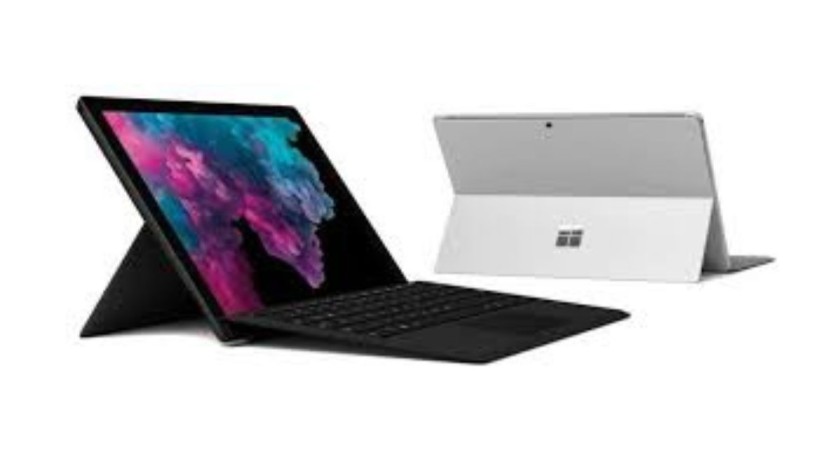
Windows tablets provide users with a familiar desktop environment on a portable and versatile device. These tablets offer the convenience of a PC while on the go, allowing for smooth transitions between productivity and entertainment. With features such as multitasking capabilities, support for stylus input, and compatibility with a diverse array of software, Windows tablets cater to the needs of both professionals and creative individuals, making them an ideal choice for a wide range of users.
(4) Chrome OS Tablets: Simplicity and Security Reinvented
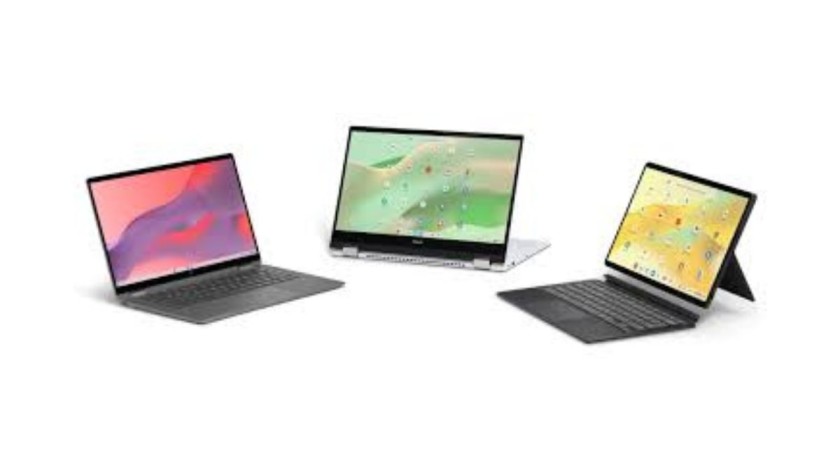
Chrome OS tablets are meticulously crafted to provide users with a seamless and secure computing experience. These tablets prioritize simplicity and security, making them an excellent choice for individuals who value ease of use and peace of mind. With the ability to access the expansive Google Play Store and effortless integration with Google’s suite of productivity tools, Chrome OS tablets offer a holistic and user-friendly experience for both professional and personal use. Furthermore, the tablets come equipped with robust security features such as automatic updates and sandboxing, ensuring that your data remains protected and your privacy is maintained.
Choosing the Right Tablet Operating System for You
When selecting the right tablet operating system, there’s no one-size-fits-all solution. Consider your specific needs, preferences, and usage patterns to determine which OS aligns best with your lifestyle. Whether you prioritize versatility, seamlessness, power, or simplicity, there’s a tablet operating system out there to suit your unique requirements.
In conclusion, exploring different tablet operating systems opens up a world of possibilities, allowing you to find the perfect balance between functionality, performance, and convenience. Whether you’re drawn to the versatility of Android, the seamlessness of iOS, the power of Windows, or the simplicity of Chrome OS, there’s a tablet operating system waiting to empower your digital journey.
Stay tuned for more insights, tips, and recommendations as we continue to explore the ever-evolving landscape of tablet technology. Until next time, happy exploring!
Read more- Amazon Echo vs Google Home: Ultimate Comparison
FAQ-
What factors should I consider when choosing a tablet operating system?
Consider your specific needs and preferences, such as the type of tasks you’ll be using the tablet for (work, entertainment, etc.), your familiarity with the operating system, app availability, integration with other devices, security features, and budget.
Are there any notable differences between tablet operating systems and their desktop counterparts?
While tablet operating systems often share similarities with their desktop counterparts, such as interface design and software compatibility, they are typically optimized for touchscreens and mobile usage. Additionally, certain features or applications may be tailored specifically for the tablet experience.
Can I switch between different operating systems on a tablet?
In most cases, tablets are designed to run a specific operating system, and switching between different OSs may not be feasible without significant technical expertise or modifying the device, which could void warranties or cause other issues.
Are there any limitations to using certain operating systems on tablets?
Each operating system has its own set of strengths and limitations. For example, while Android offers extensive customization options, iOS provides a more streamlined and secure user experience. It’s essential to research and understand these limitations before making a decision.
How frequently do tablet operating systems receive updates?
The frequency of updates varies depending on the operating system and the device manufacturer. Generally, major operating systems like Android, iOS, and Windows receive regular updates to improve performance, and security, and add new features.
Can I use the same apps across different tablet operating systems?
While many popular apps are available across multiple operating systems, there may be some differences in availability and functionality between platforms. It’s recommended to check the respective app stores for compatibility before making a purchase.
Which tablet operating system is best for gaming?
Both Android and iOS offer a wide selection of games, including popular titles and exclusive releases. However, some users may prefer one platform over the other based on personal preferences, game availability, and performance optimizations.
How do tablet operating systems impact battery life and performance?
The impact of the operating system on battery life and performance can vary depending on factors such as hardware specifications, software optimization, and usage patterns. Generally, newer operating system versions may include performance improvements and battery optimizations.
Are there any privacy concerns associated with certain tablet operating systems?
Privacy concerns can vary depending on the operating system and its associated ecosystem. Some users may prefer operating systems that prioritize user privacy and security, while others may prioritize integration with other services and features.
Can I dual-boot multiple operating systems on a tablet?
Dual-booting multiple operating systems on a tablet may be technically possible on some devices, but it often requires advanced technical knowledge and may void warranties or cause instability. It’s essential to research compatibility and potential risks before attempting to dual-boot.
